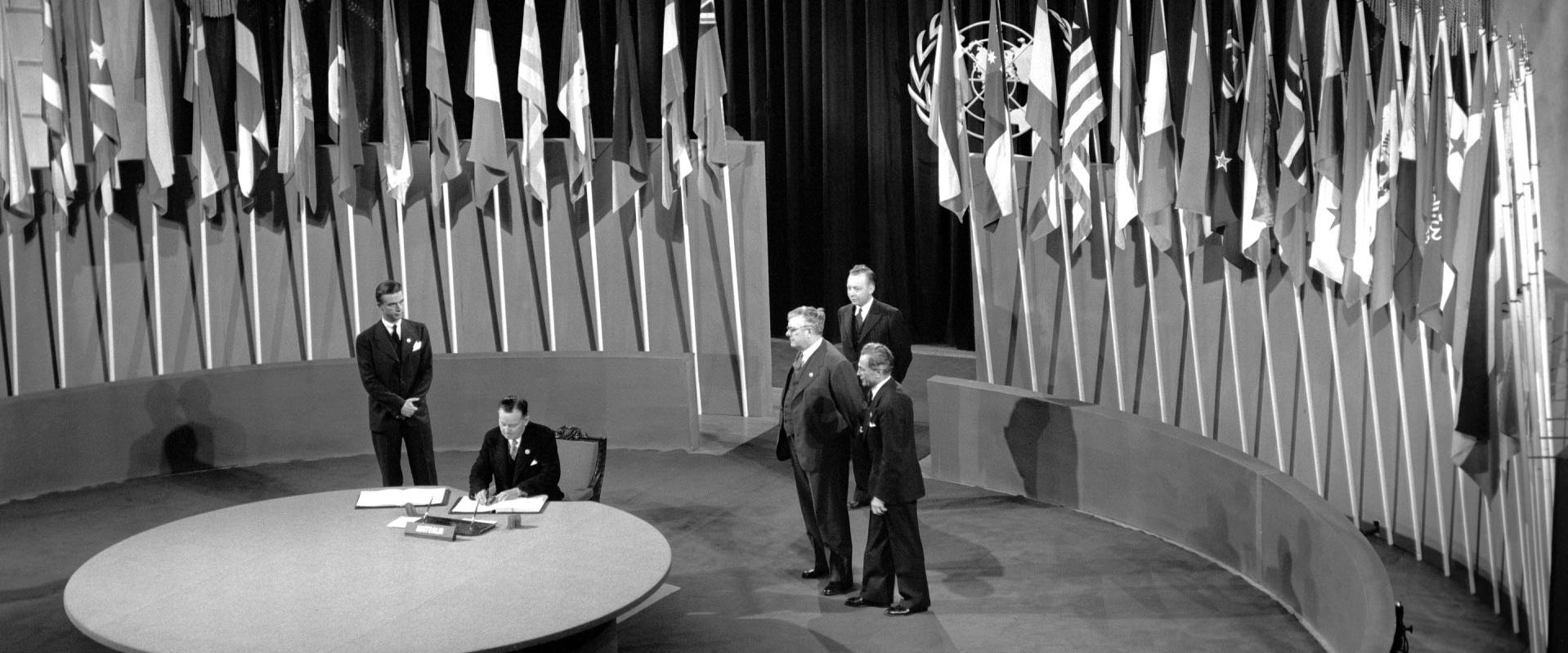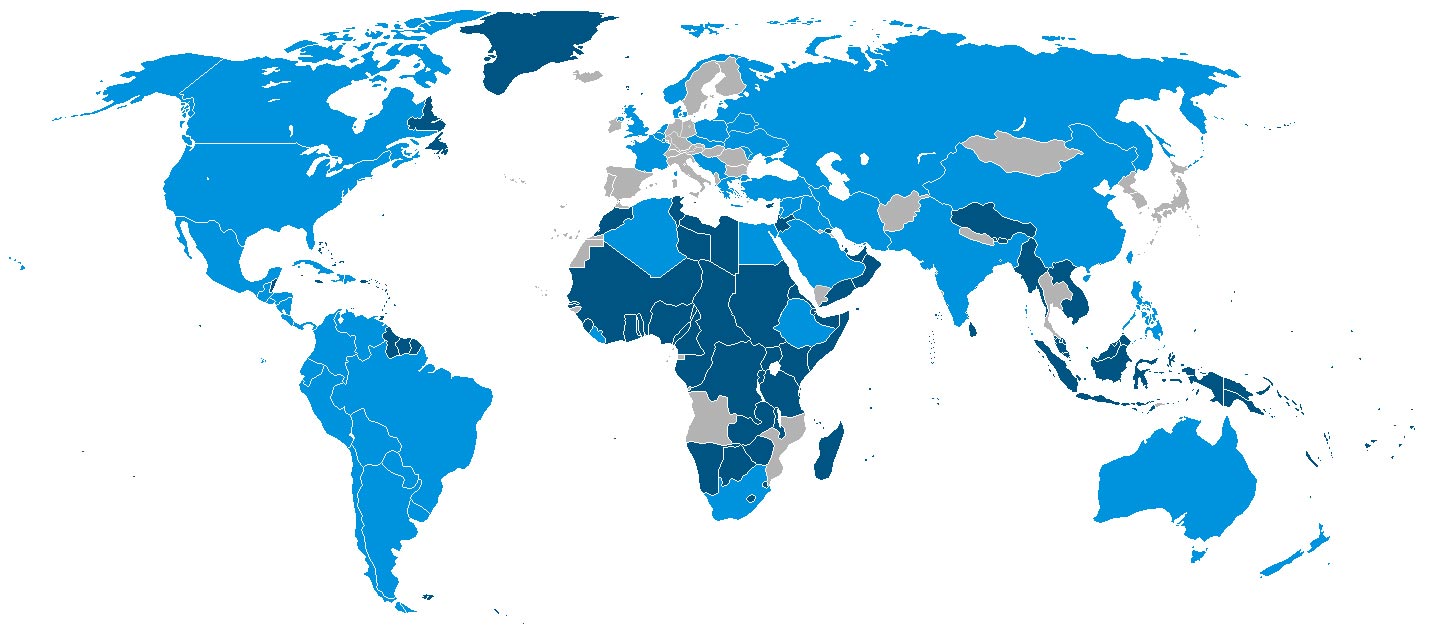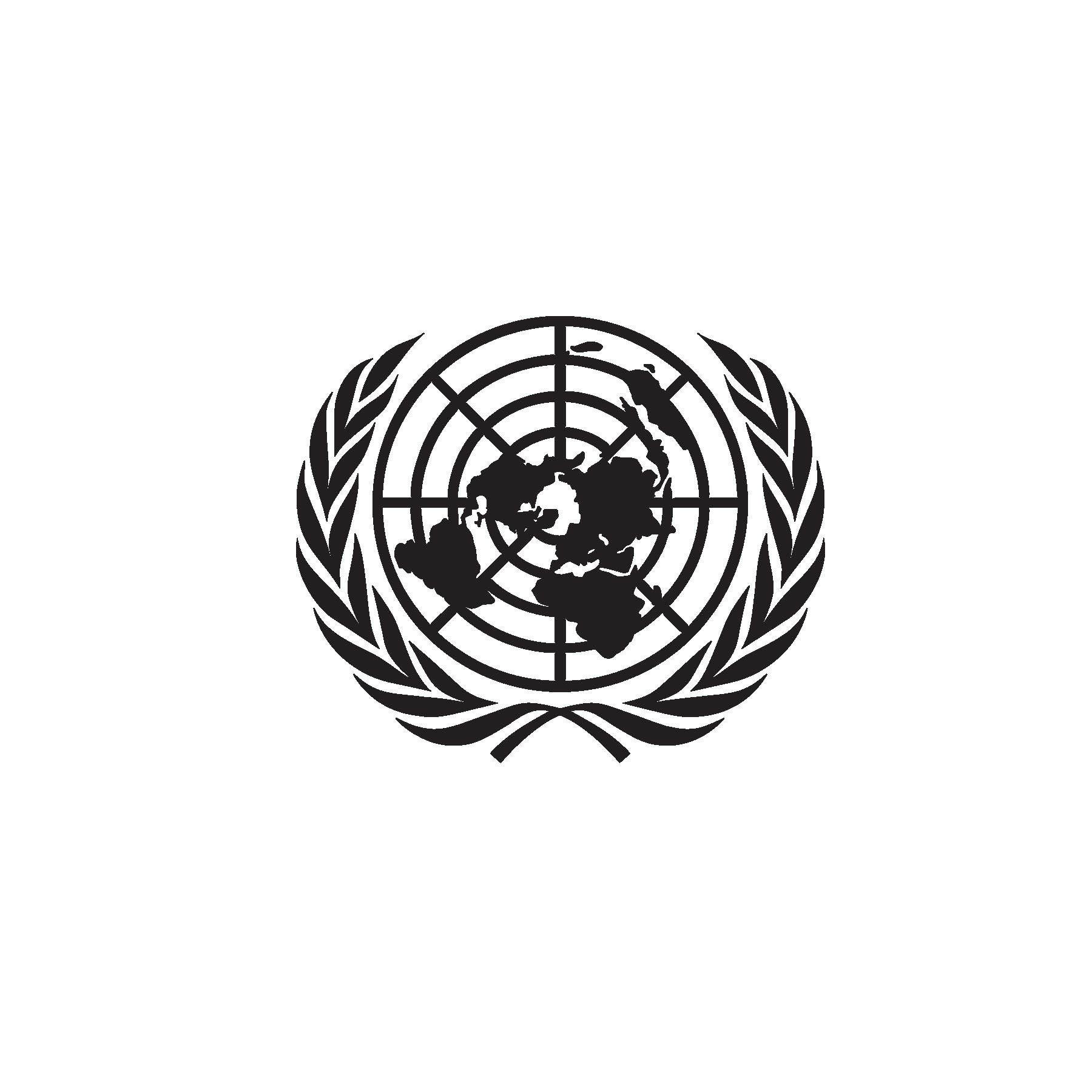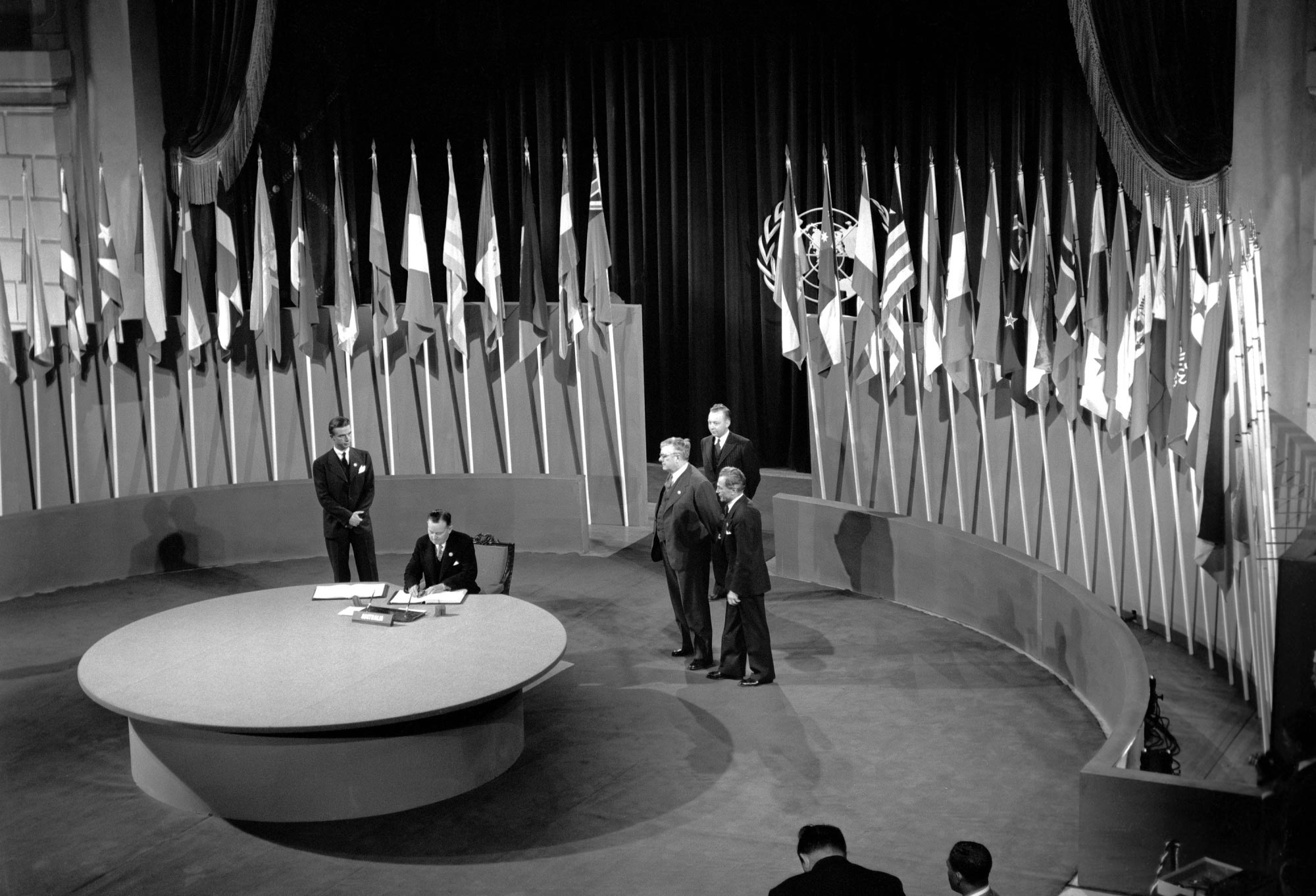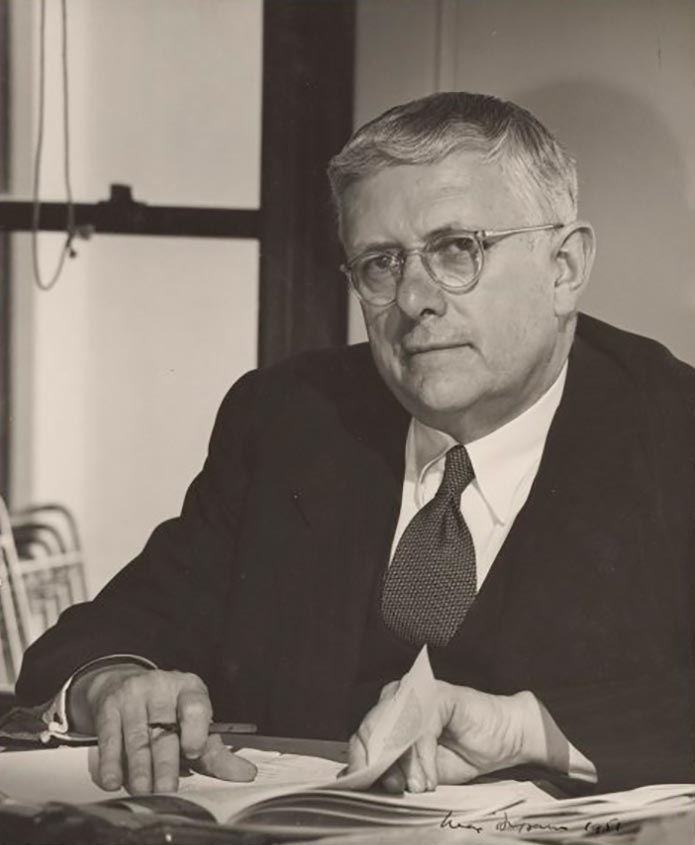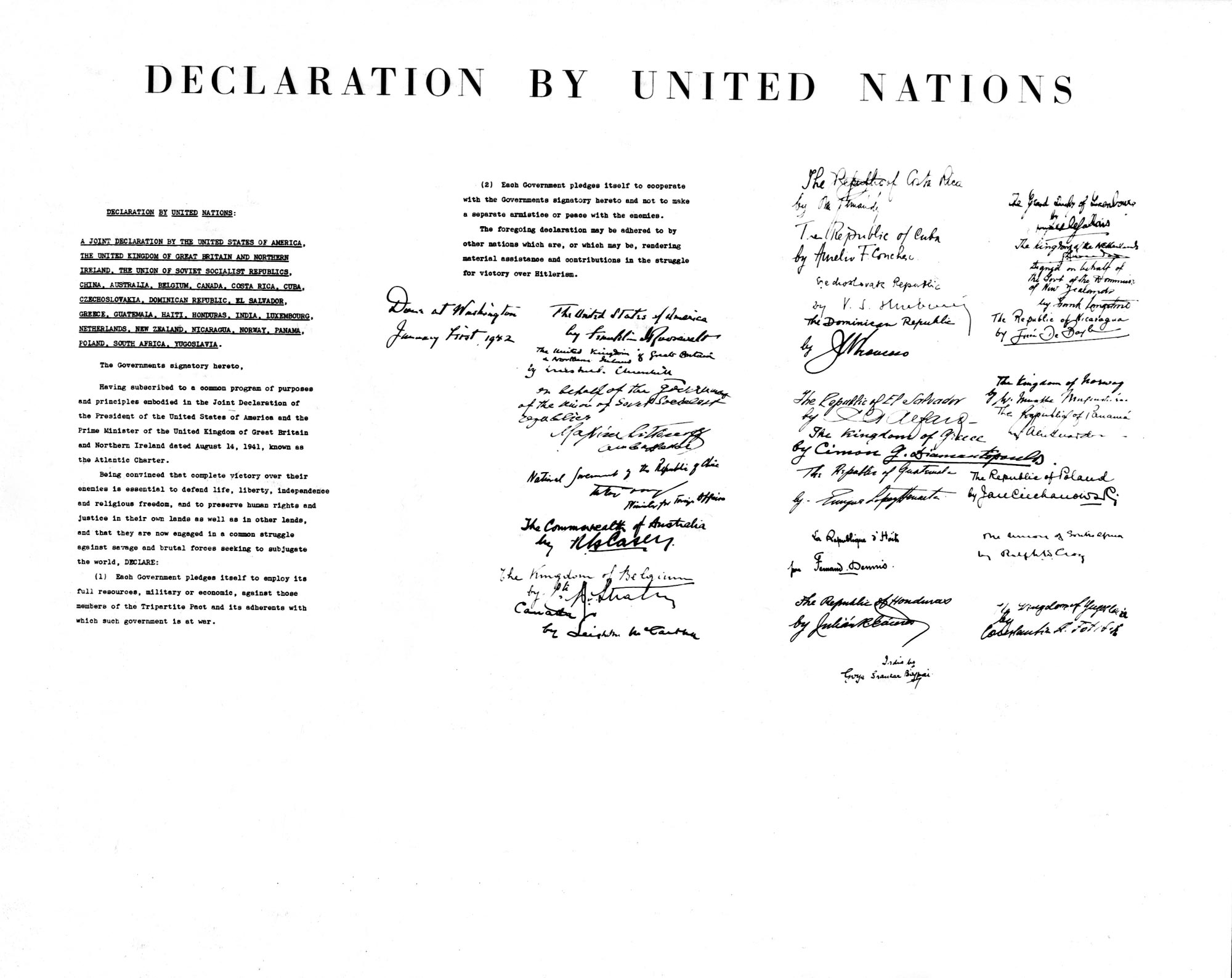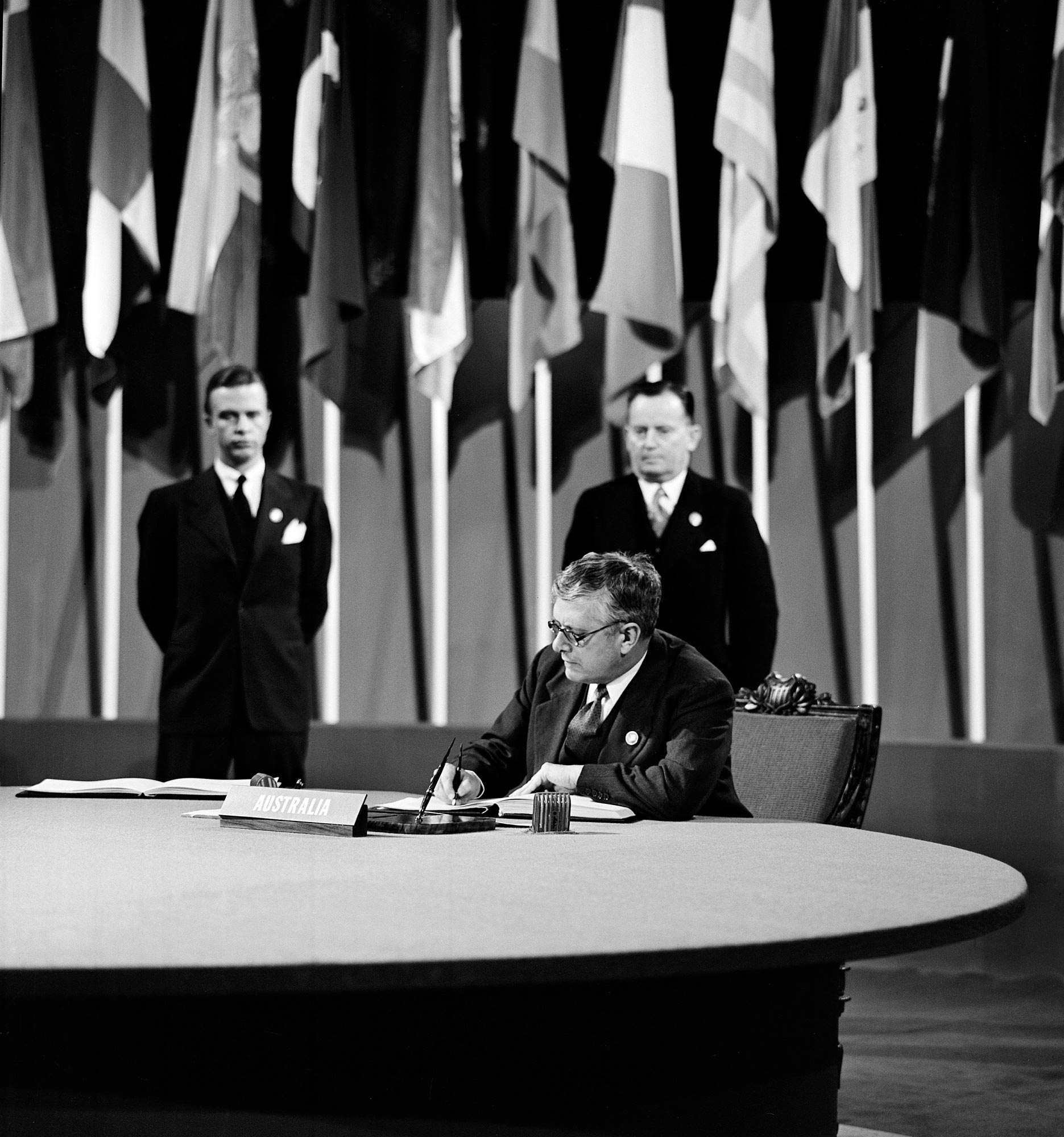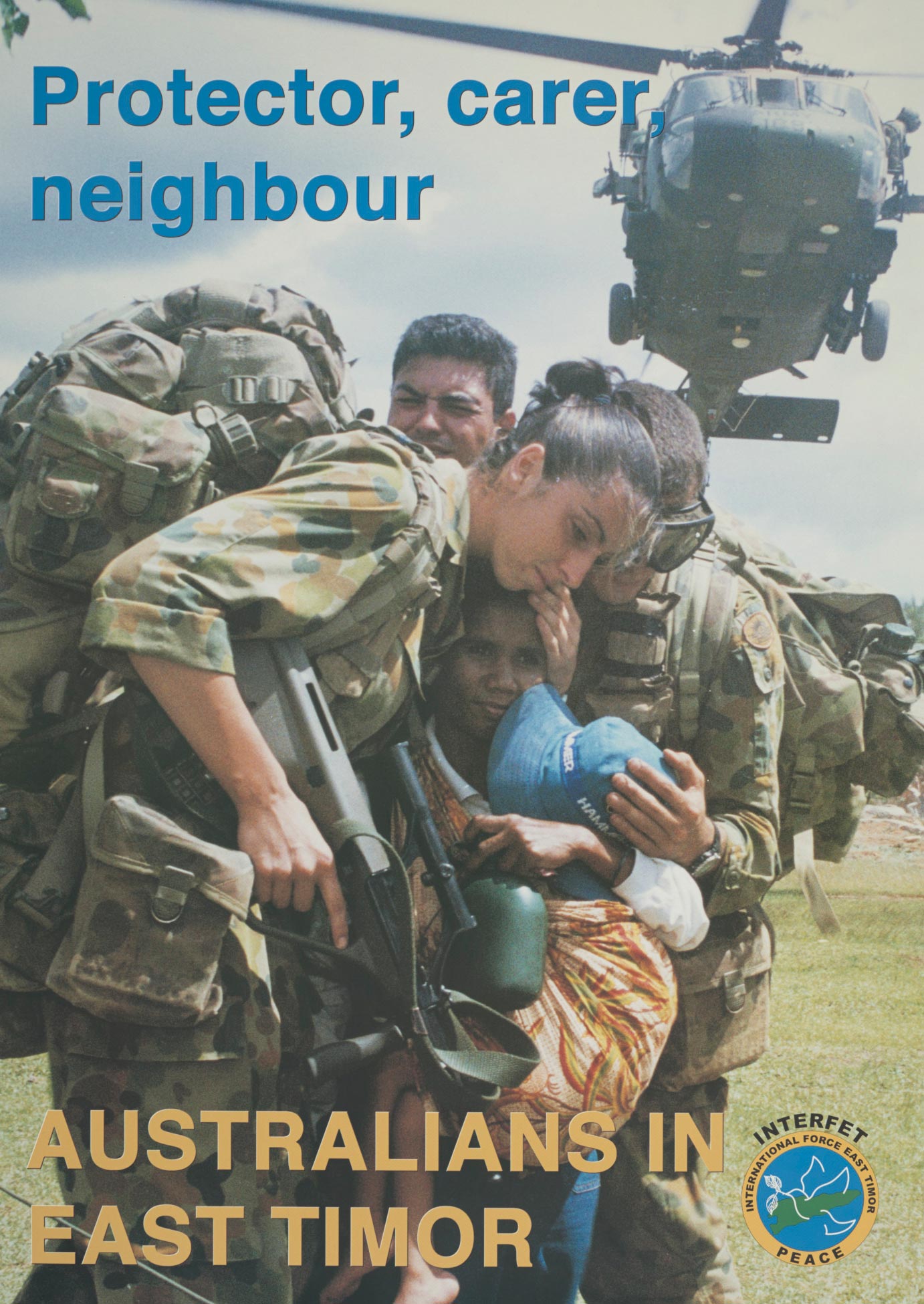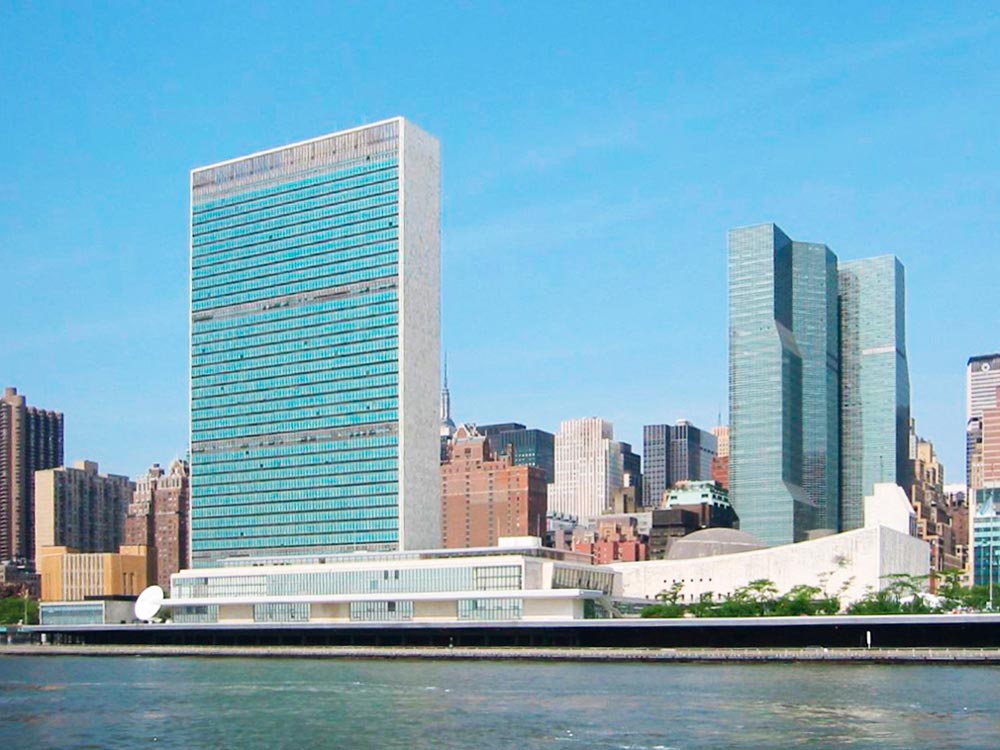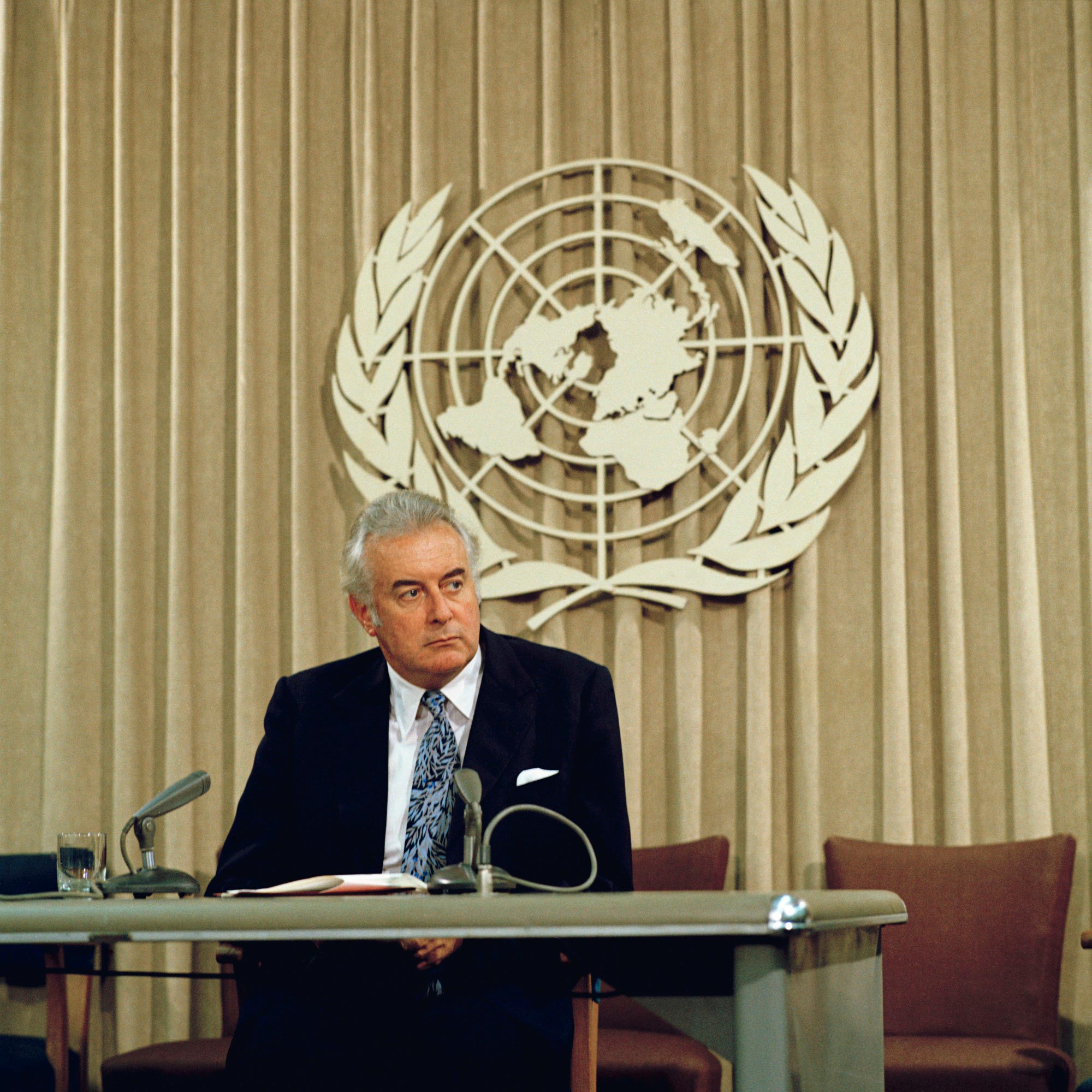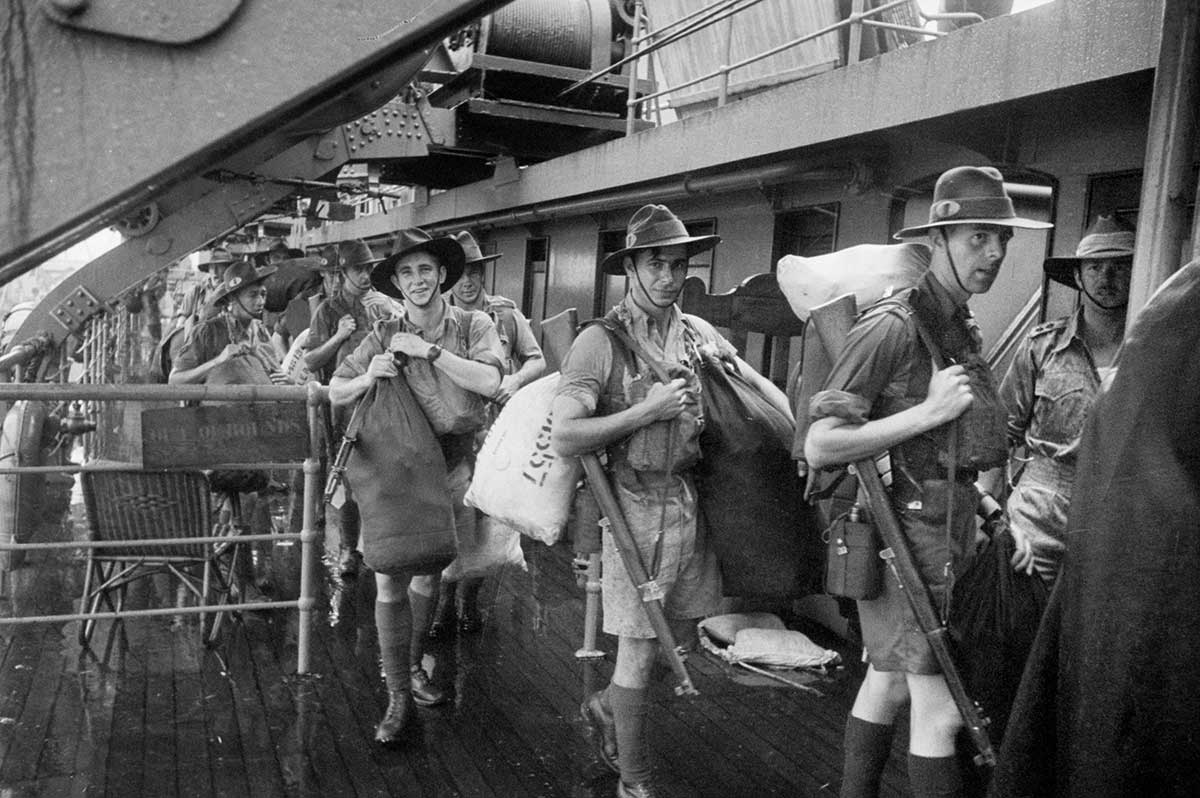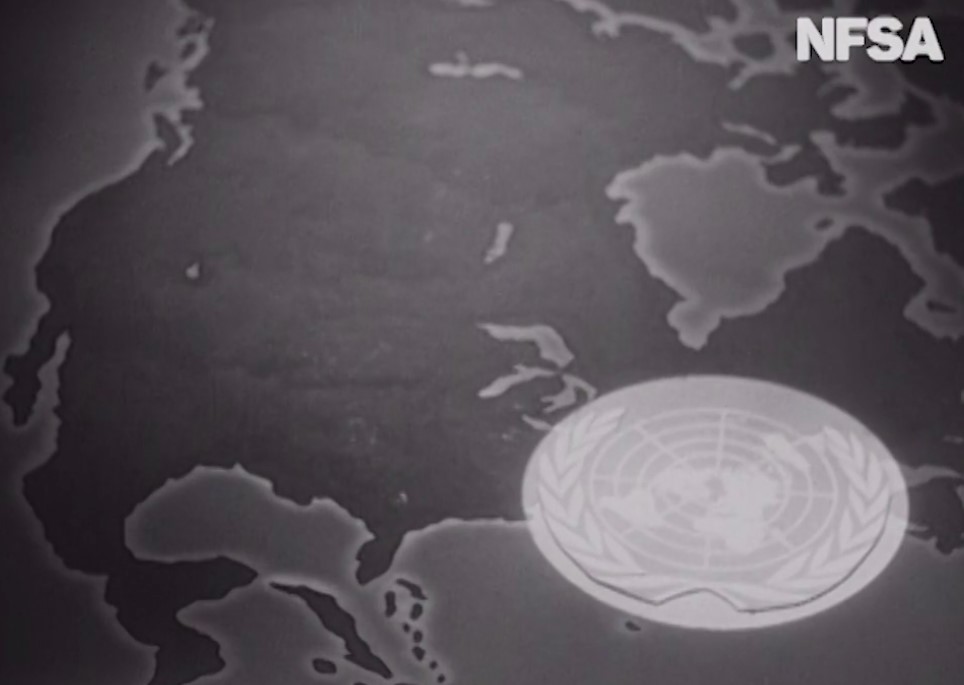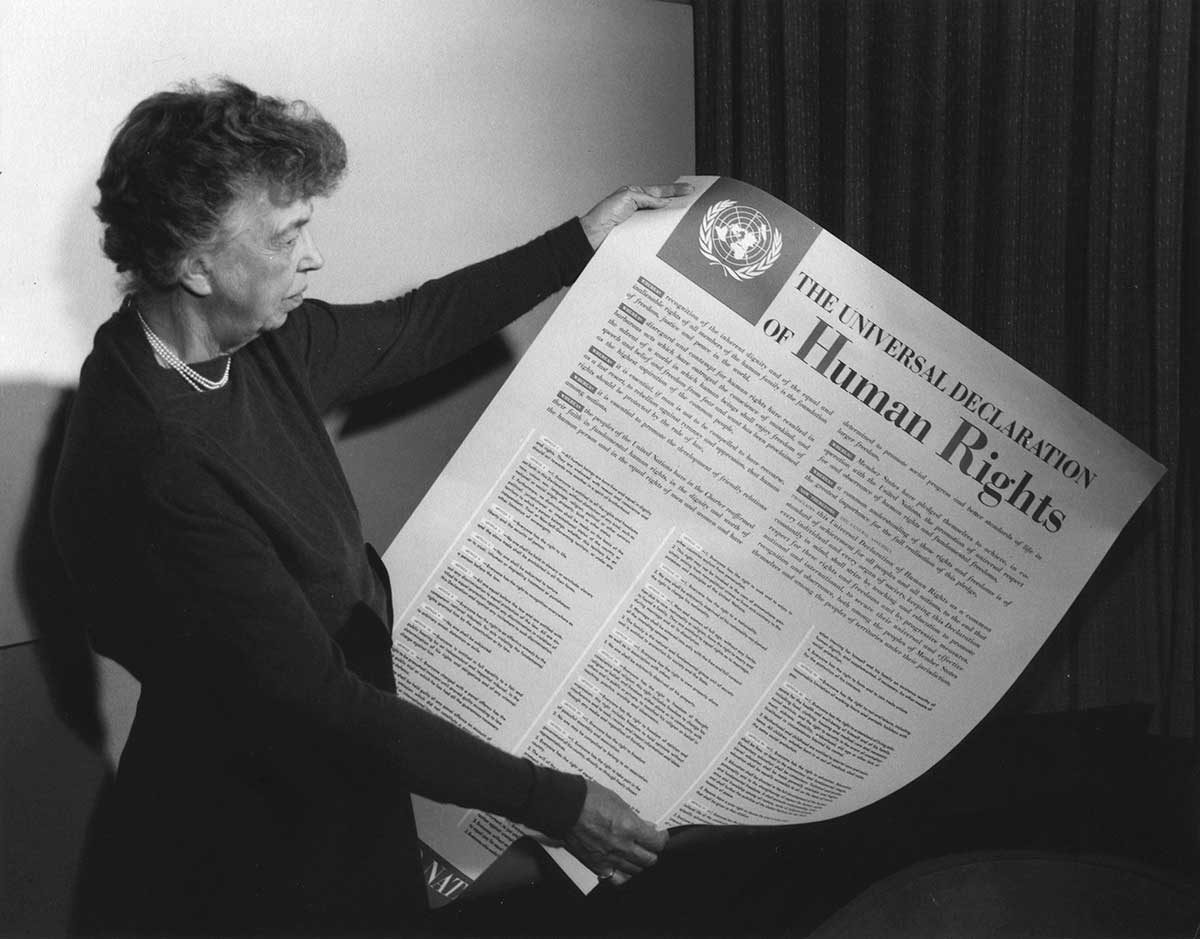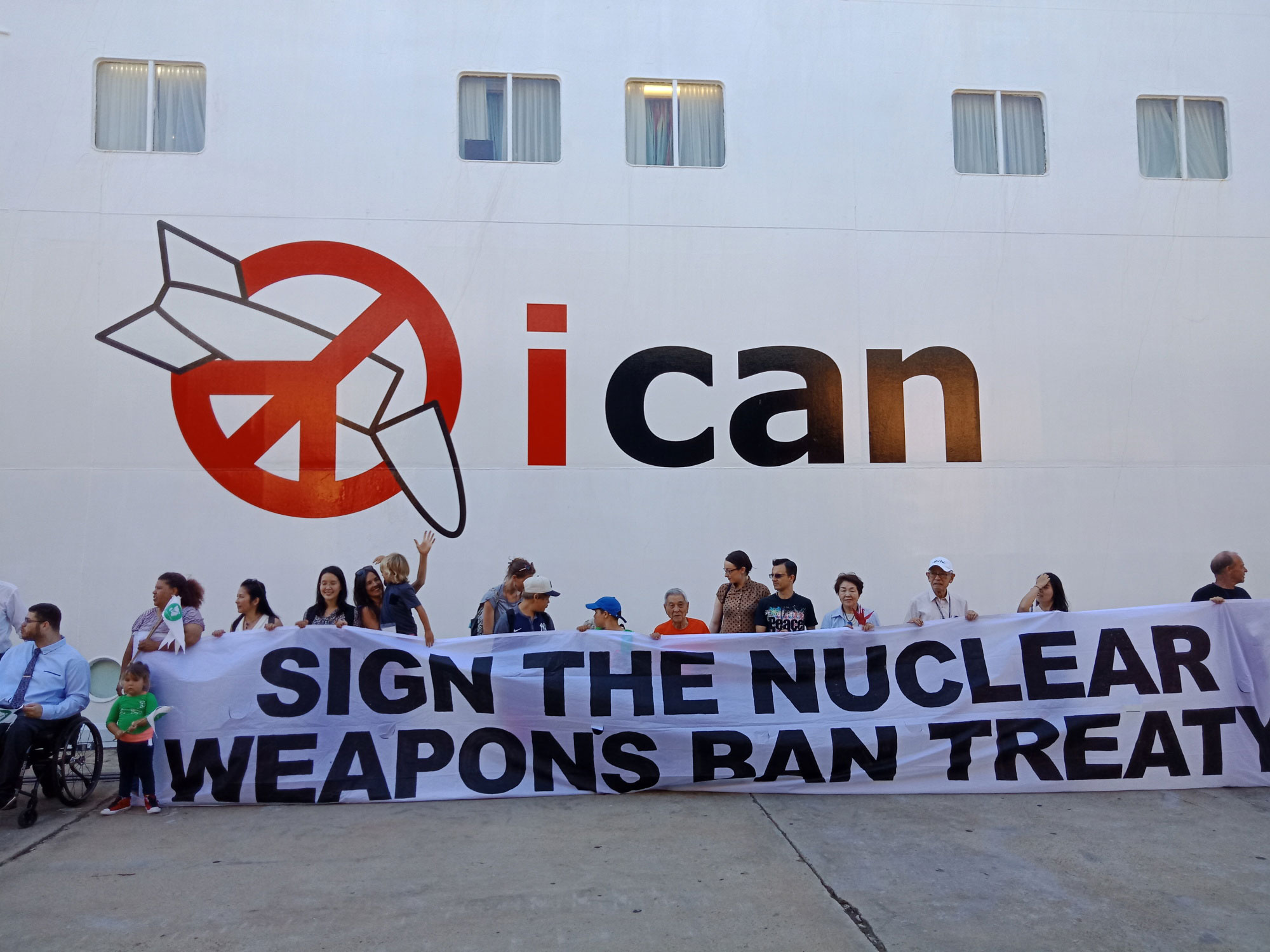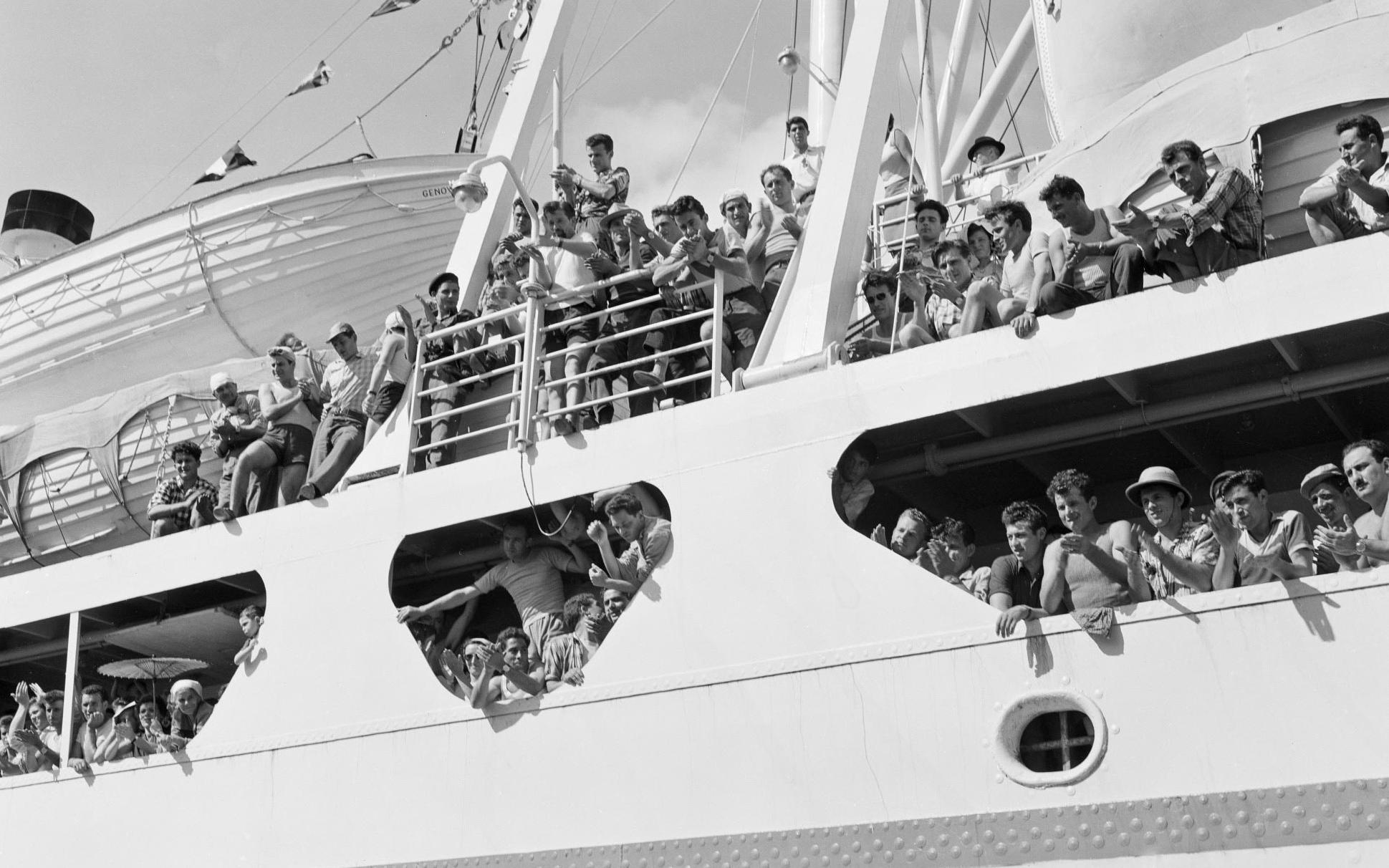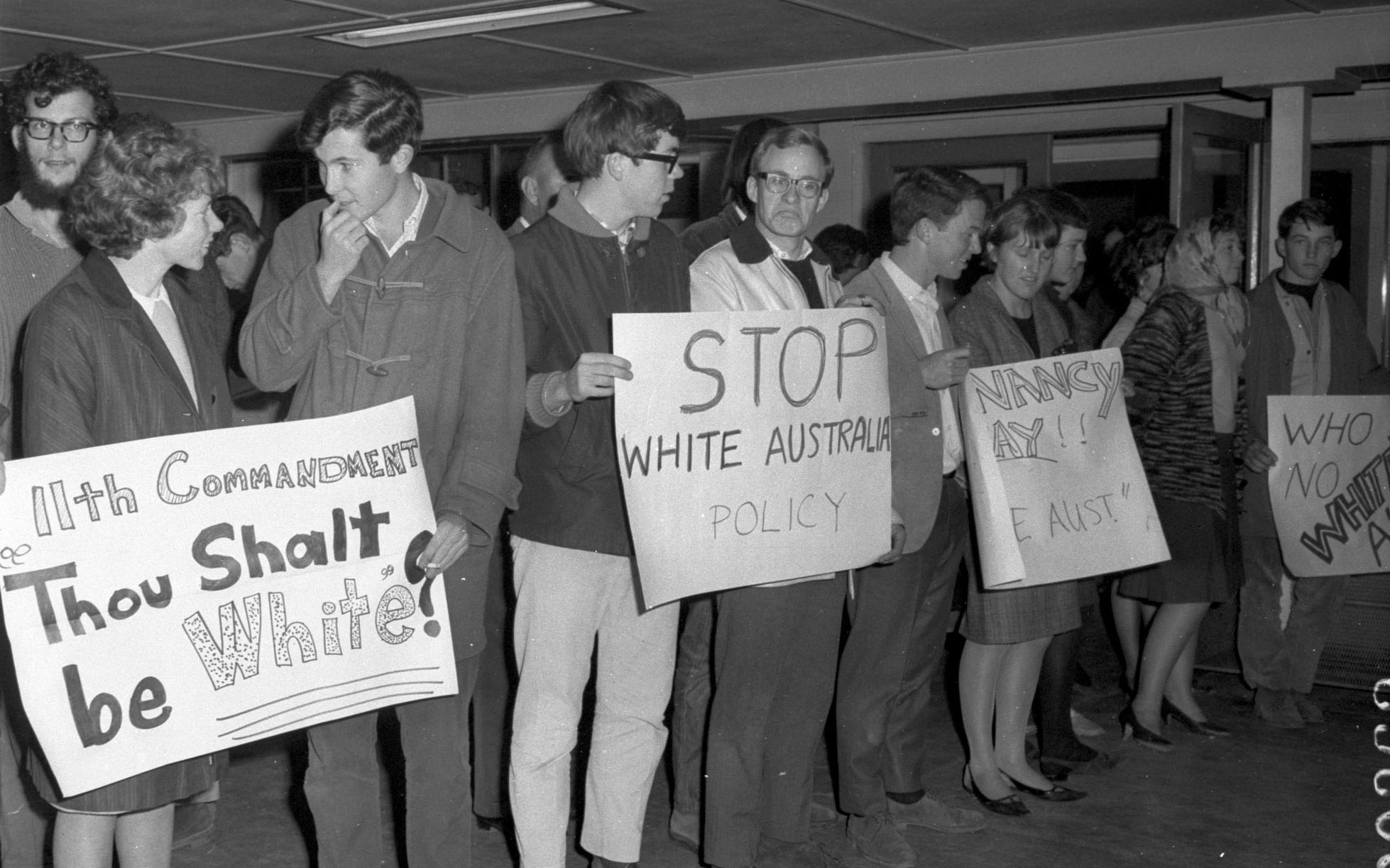Australia on the world stage
1945: Australia plays a leading role in founding the United Nations
Australia on the world stage
1945: Australia plays a leading role in founding the United Nations
In a snapshot
The United Nations (UN) was created in 1945 after the devastation of the Second World War. Representing the nations of the world, its main goal was to maintain peace and security. Australian politician ‘Doc’ Evatt was an important contributor in the early days of the UN’s existence. He helped to make sure that smaller nations like Australia had a say in the organisation, and was the President of the UN General Assembly from 1948 to 1949. Australia is still an active member of the UN today.
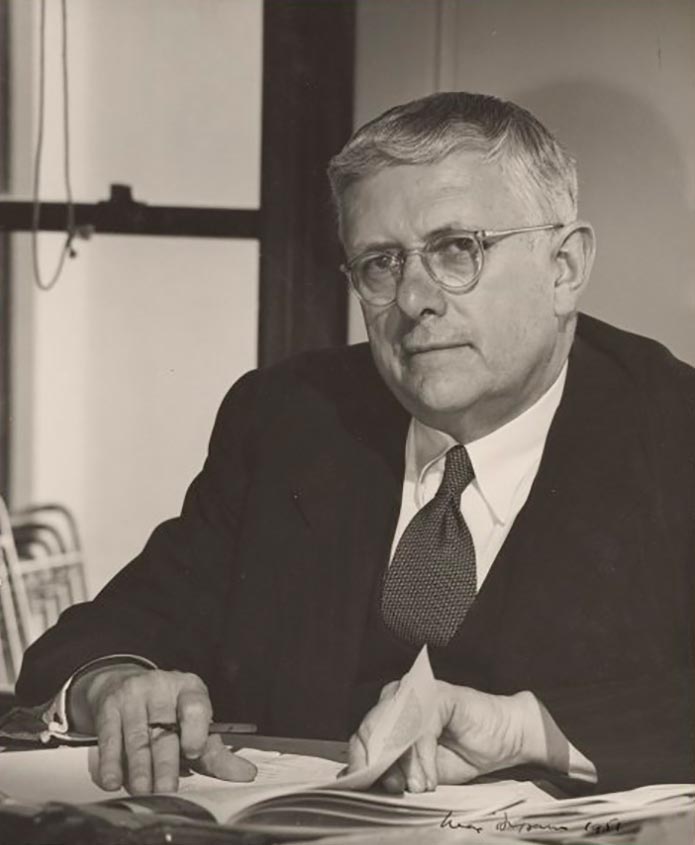
 Can you find out?
Can you find out?
1. What led to the formation of the United Nations?
2. Why did ‘Doc’ Evatt want smaller nations to have more input into the United Nations?
3. What were ‘Doc’ Evatt’s main contributions to the formation of the United Nations?
What led to the founding of the United Nations?
The Second World War (1939–45) was one of the most devastating conflicts in history. The nations allied against Nazi Germany wanted to make sure that a conflict like this never happened again. In 1941 many of these nations signed a declaration that hoped for peace for current and future generations. This declaration was followed by a series of conferences which resulted in the creation of the United Nations in 1945.
The UN replaced the League of Nations as the world’s leading body for peace and security, where each nation could be represented and disagreements could be resolved without the use of violence.
Research task
Research the League of Nations, the organisation that came before the United Nations. Why didn’t this organisation succeed in achieving peace around the world? Give reasons for your answer.
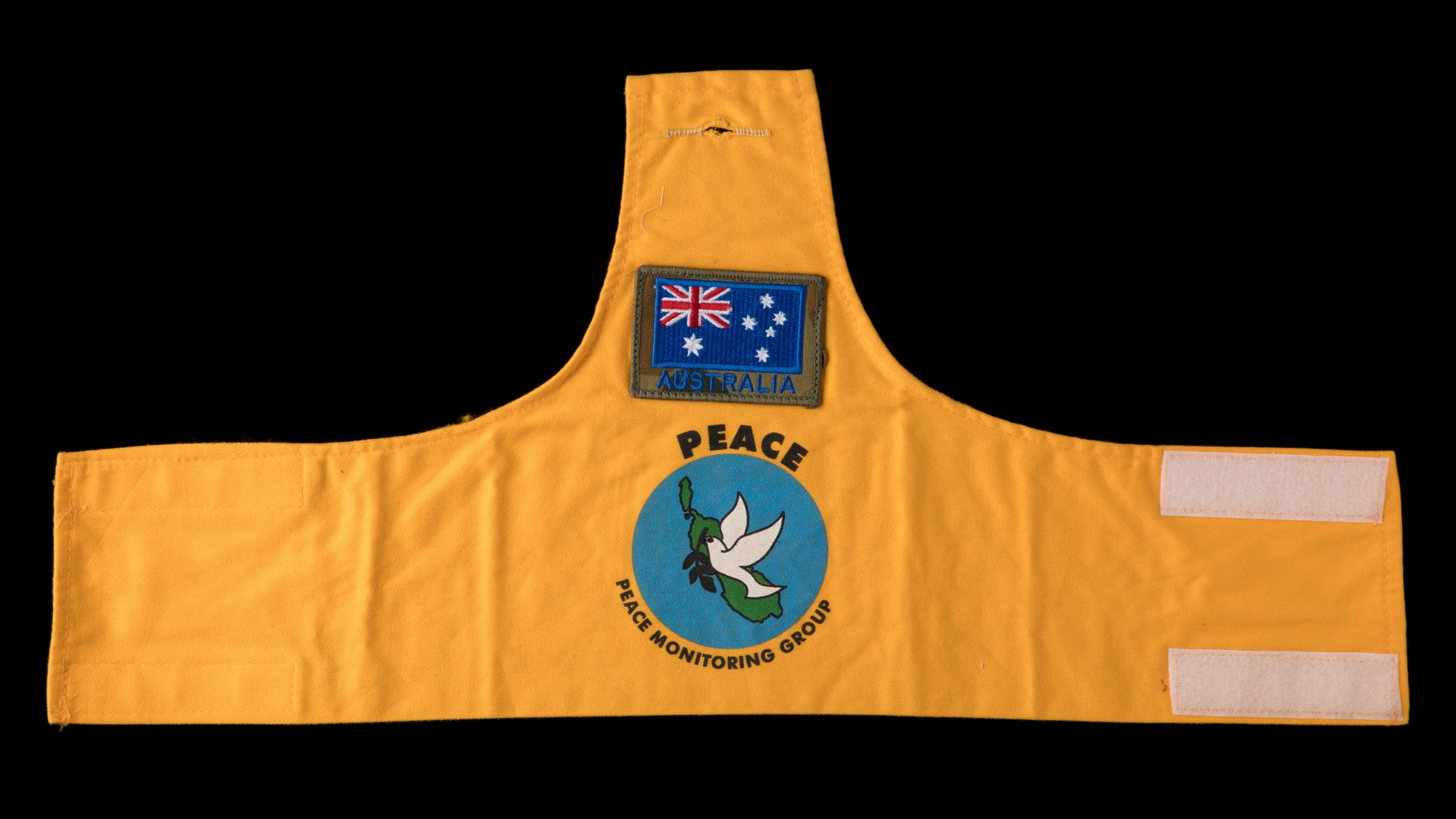
What was Australia’s role in the founding of the United Nations?
The Australian Minister for External Affairs, Herbert Vere (‘Doc’) Evatt, played a crucial role in the founding of the United Nations. Evatt was furious when he discovered that Britain, the United States and China had made important decisions about the end of the war without consulting Australia. Evatt formed an alliance with New Zealand to make sure that larger and more powerful nations did not keep making decisions without consulting smaller nations such as Australia.
Evatt supported the idea of ‘collective security’ in the early stages of the United Nations, meaning that smaller countries might be better protected against aggression. He opposed proposals from the 1944 Dumbarton Oaks conference that gave too much power to a small number of powerful nations.
Research task
Read this article on the life of ‘Doc’ Evatt in the Australian Dictionary of Biography. What were three of Evatt’s important achievements outside the United Nations?
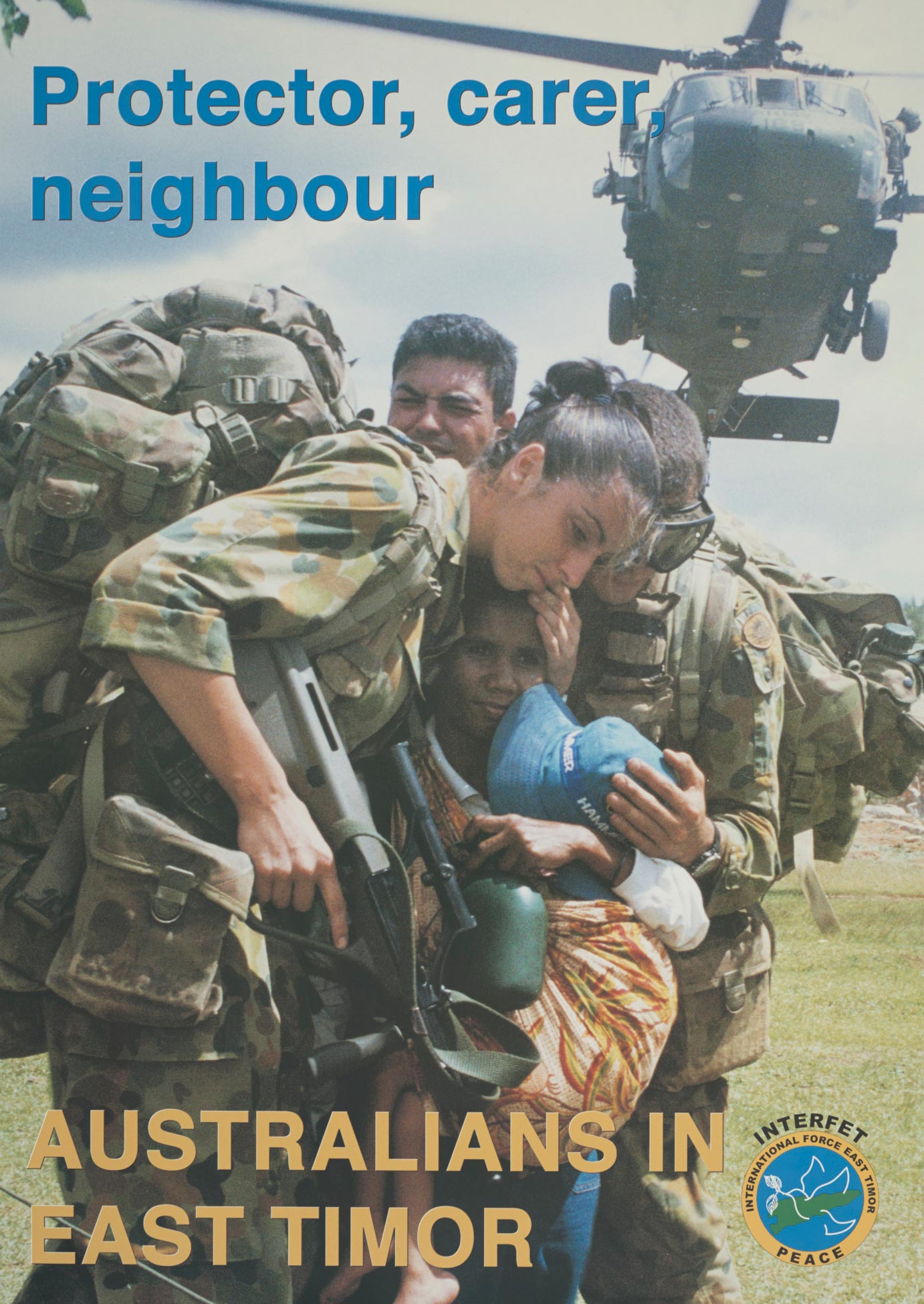
Evatt led the Australian delegation at the San Francisco conference in 1945. The delegation argued that the General Assembly (representing all nations) should have powers similar to the Security Council (made up of a small number of powerful nations). Despite these successes Evatt wasn’t able to remove the veto power of the Security Council, meaning that any member of the Security Council could stop a resolution from being passed.
Evatt also made sure that the United Nations did not focus only on peace. Freedom for all, respect for human rights, full employment and better living standards became a priority for the organisation. He also argued that Australia should not automatically side with any particular group, but judge each decision on what was best for Australia — and the world.
‘By enabling the U.N. to develop in its early years as a forum whose outcomes were not always predictable, Evatt’s Australia may have helped to secure legitimacy for the new organization, and perhaps allowed the U.N. to act as a force for restraint in the Cold War.’
How has Australia contributed to the United Nations?
Evatt became the President of the United Nations General Assembly from 1948 to 1949. Because of Evatt the United Nations General Assembly voted for Australia to have a non-permanent seat on the Security Council from 1946 to 1949. Australia has subsequently been a member of the United Nations Security Council on four occasions: 1956–57, 1973–74, 1985–86 and 2013–14.
In 2017 Australia was elected as one of 15 nations to the UN’s Human Rights Council, to serve a three-year term.
Read a longer version of this Defining Moment on the National Museum of Australia’s website.
Research task
Research the role of the United Nations Security Council. Has Australia ever been a member of the Security Council? If so, when and what issues were important at that time?
 What did you learn?
What did you learn?
1. What led to the formation of the United Nations?
2. Why did ‘Doc’ Evatt want smaller nations to have more input into the United Nations?
3. What were ‘Doc’ Evatt’s main contributions to the formation of the United Nations?






